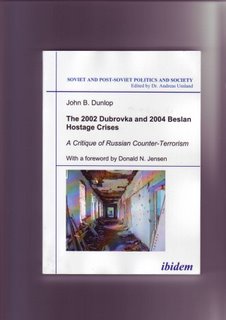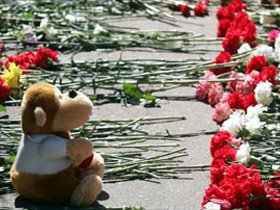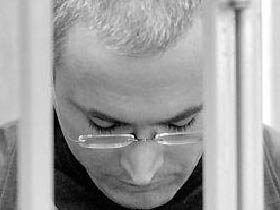The Geopolitics of ChinaBy George Friedman
Chinese President Hu Jintao visited Washington last week for a meeting that diplomatically might be called "nonproductive" -- or, realistically, "disastrous." Not only was nothing settled, but a series of incidents -- ranging from a reporter shouting insults at Hu and being permitted to continue doing so for three minutes, to an announcement that the national anthem of "The Republic of China" (also known as Taiwan) was being played -- marred the visit, to say the least.
It is hard for us to believe that the admission of a Falun Gong member to the White House press pool would go unnoticed by the White House staff, or that it would take three full minutes to silence her. We are, sad to say, cynical people, and it is plausible that the insults were deliberate. The American side had been leaking for weeks that Hu would try to use the visit for his own political ends in China, and wanted to be granted every honor conceivable during the trip. The White House appeared irritated by this hubris, although it would, on the surface, appear quite natural for the United States and China to exchange full diplomatic courtesies.
Obviously, something serious is going on in Sino-U.S. relations. The United States has openly discussed a hedge strategy on China, under which economic relations would proceed while the United States increased its military presence in the region as a hedge against future trouble. China, for its part, has been more than a little troublesome in areas where the United States does not want it to be, particularly during the current confrontation with Iran.
China and the United States are bound together economically. That is one of the major problems, since they need very different things. The Chinese economy, as we have argued in the past, is not doing nearly as well as its growth rate would indicate. We won't rehash our views on that. However, the economic reality creates an obvious tension. Chinese exports are surging at very low or nonexistent profit margins in order to sustain a financial system that has accrued a nonperforming loan burden that is, by some measures, as high as 60 percent of gross domestic product. The United States is addicted to Chinese imports, and China is addicted to exporting to the United States. The United States wants China to revalue the yuan in order to raise the price of Chinese exports. The Chinese, eager to maintain and increase exports, have no intention of allowing a meaningful rise in the yuan.
There are other forces binding the two countries together as well. The most important is Chinese money -- which is flowing out to other countries precisely because China is no longer a particularly attractive place for Chinese investment. There is serious capital flight under way, as money is redeployed to safer havens. The safest haven from the Chinese point of view is the United States -- thus, Chinese investment there is surging. And the United States needs this money. In this sense, both countries are in a death-lock. There is no other economy that is as large, liquid and safe as the American economy. Chinese investors need their funds to be in the United States. And there is no larger pool of cash than China's to finance U.S. debt.
This means that there is no divorce looming in Sino-U.S. relations. But at the same time, it must be noted that, despite very close connections between China and Japan, Sino-Japanese relations have deteriorated remarkably -- and it is China that has driven the estrangement. The reasons are political: China's government has domestic problems, and patriotic fervor will tend to buttress Beijing's power. Japan is still deeply hated for its behavior in World War II, and attacking Japanese behavior is good politics. The Chinese have strained relations with Japan nearly to the breaking point.
What is important here is this: It must not be assumed that China is driven purely by economic considerations. In the case of Japan, Beijing clearly has subordinated the economic advantage of having smooth relations with Tokyo to its own domestic considerations. Now, Japan is not the United States -- it is a significant country for China, but not economically decisive in the way that the United States is. The Chinese have more room for maneuver there. At the same time, it must be understood that China is playing a complex game, and while making money is up there on the priority list, it is not the only thing up there. Preserving national unity in the face of centrifugal forces and foreign power also matters a great deal to the Chinese.
It is therefore time to stop to consider China's national strategy in the long run, and therefore, to consider China's geopolitics.
The Geography Factor
Beginning, as is necessary, with the outlines of China's national boundaries, we are immediately struck by the fact that China is, in many ways, an island. To the east are the South and East China Seas. To the northeast is Siberia, thinly inhabited and to a great extent uninhabitable. Some limited military expansion in that direction is possible, but a large population could not be sustained. To the direct north is Mongolia -- occasionally part of China, occasionally the ruler of China, but currently a fairly unimportant area, not worth projecting force into. To the southwest are the Himalayas. There is frequent talk of India as balancing China, but this is, in fact, meaningless. They are as much separated as if there were a wall. There can be skirmishes along the dividing line in the Himalayas, but no massive movement of armies.
In the southeast, there is Indochina. China could expand there, but the last time there were land-based skirmishes, in 1979, Vietnam beat the Chinese soundly (though both sides claimed victory). Jungles and mountains stretching from eastern India to the South China Sea make that region impassable, even without the need for self-defense. Finally, there are the western approaches into Central Asia, through Kazakhstan. This has been the traditional, and in some ways only, route for Chinese aggression. China is certainly deeply involved in Central Asia, but its own region of Xinjiang is both Muslim and hostile to Beijing. It does not provide a base for launching invasions, even if one was wanted.
For these reasons, China must be viewed as one of the most insular great powers in the world. It has occupied most of the terrain that is accessible to it; what remains is either inaccessible, undesirable or quite able to defend itself. China's great interest, therefore, should be the oceans. Over the past 20 years, China has become a major exporter and thus should have a great interest in securing its sea lanes. But China's coastal waters are effectively controlled by the U.S. 7th Fleet. Constructing a navy that could challenge the U.S. Navy would take a fortune, which China probably has, but also one or two generations would be needed -- not only for construction, but for establishing a military culture suitable for an aggressive naval force.
Most important, challenging the U.S. Navy with a Chinese navy cannot be done regionally. The United States has fleets other than the 7th Fleet, and if the U.S. Navy were concentrated against China, the Chinese could not fight a defensive battle. They would have to take the fight to the Americans, and that would mean fielding a global naval force. China might one day have that, but they do not have it now. In this sense, the standard concerns about a Chinese invasion of Taiwan are not realistic. China does not have a naval force capable of taking control of the Taiwan Strait, nor the amphibious force needed to gain significant lodgment in Taiwan, nor therefore -- and this is the key -- the ability to sustain a multidivisional force in Taiwan.
The Internal Divide
China does not have many regional options with conventional forces nor, for that matter, does it face a conventional threat from within the region. China's primary geopolitical problem, and thus its chief military mission, is domestic. China is a highly diverse and fragmented country; maintaining control of the current extent of the country is the major strategic problem. Unlike most nations, whose external geopolitical problems define their military thinking, China's internal geopolitical problems drive its military planning.
There are two dimensions to these problems. The first is ethnic: China occupies areas like Xinjiang, Tibet and Manchuria that are ethnically distinct and sometimes restive. The other and deeper problem, however, is not ethnic but regional. China has a large coastal plain. It also has a vast interior that is mountainous. The tension between those two regions historically has been a great challenge that China has faced.
The interior is heavily driven by agriculture -- subsistence agriculture. It is extraordinarily poor, and arable land is minimal. The coastal regions are relatively better off, to the extent to which they conduct international trade through coastal ports. Thus, China has had two realities. In one, the coastal regions were cut off from the rest of the world, and there was a rough equality between the regions. Until the British showed up in the 19th century, for example, trading with foreigners had been illegal. After the British forced China open, the coastal regions boomed, and the country fragmented; the coastal regions, manipulated by foreigners who were in turn manipulated, turned outward to the ocean, while the interior stagnated. Mao tried to create a revolution in Shanghai and failed. Instead, he went on his Long March to Yenan in the interior, raised a peasant army from there, and came back to conquer the coast. He also closed off China from the world, creating poverty but relative unity.
Deng gambled with the idea that he would be able to have his cake and eat it too. He opened China to the world, thereby enriching the coastal regions and recreating the tension that Mao had sought to abolish. For 30 years, Deng's gamble worked. Now it is breaking down. Beijing is urgently trying to shift resources from the wealthy coastal regions to the restive interior. The coastal provinces naturally are resisting. The great question is whether Beijing will be able to juggle the two realities, whether China will again turn inward to maintain geopolitical integrity or if it will fragment further into warring regions.
Balancing the two indefinitely is the least likely outcome. But China does have one other card to play, which is patriotism. The Communist Party has little legitimacy at this point, but the idea of China -- particularly among ethnic Chinese of whatever region -- is not a trivial driver. In order to generate patriotic fervor, however, there must be a threat and an enemy. At this point, the Chinese are using the Japanese in order to sustain patriotism. Reclaiming Taiwan would stir the spirits and reduce regional tensions, but this, as we have pointed out, would be militarily difficult in any conventional way. Moreover, it would bring a confrontation with the United States.
Priorities and Options
If we accept the idea that maintaining the territorial integrity of China is its greatest geopolitical imperative and that regional prosperity comes second for Beijing, it follows that the government will attempt to impose its will on the coast, and trade and economic concerns will come second. Beijing's interest in having smooth trade relations wanes, both because the wealth gap exacerbates tensions between the regions and because the interest runs counter to its need for external confrontation. It follows from this that China's primary interest -- and ability -- would be to maintain security in China, and that foreign adventures would be avoided except under circumstances in which they would have a high probability of success and would serve internal political interests.
A secondary goal would be to protect China's coast from foreign encroachment. Imagine the following scenario: Business and Party interests in the coastal region are resisting Beijing's efforts to bring them under control and impose taxes. The situation becomes unstable, and Western interests, investments and the expatriate community living there are jeopardized. Through some political contrivance, these local leaders position themselves as the regional authority and ask for American intervention. The United States decides to intervene. Given that this is roughly what happened in the late 19th and early 20th centuries in China -- during which time there was a major American presence in Shanghai -- it is not as far-fetched as it might seem.
Under these circumstances, the government in Beijing would be forced to resist or abdicate. So, if the primary interest of China is the maintenance of internal security, a secondary interest would be deterring foreign interventions in the event of instability. The tertiary interest would be some form of force projection in the region, particularly against Taiwan -- which not only could be regarded as an internal security matter but would provide the regime with patriotic credibility.
If we accept the premises that China's major resources will go to the army for security purposes, and that China is at least a generation away from having a significant naval force, then what military options do the Chinese have? Obviously, one is its nuclear force. That is a serious deterrent; nations have attacked nuclear powers (Egypt and Syria against Israel in 1973) but not for the fairly marginal reasons the United States might have to get involved in China at some hypothetical future date. But given that deterrence runs both ways, nuclear stalemate always leaves opportunities for subnuclear threats.
The prime military lever within China's reach is not sea-lane control, but rather sea-lane denial. Using anti-ship missiles, the Chinese could impose heavy attrition on the sea-lanes leading to Taiwan and even potentially interdict Japan's sea-lanes. This would not guarantee China control of the sea-lanes, and that is a problem if China is importing oil by sea. However, in extremis, it would hurt Taiwan and Japan more than China. And if the Chinese had systems that could threaten to overload U.S. Aegis and follow-on systems designed to protect warships, then it could force the 7th Fleet to retreat as well. The tactic would serve as a deterrent against intervention and as a suitable secondary system to supplement the army. It would also serve as a threat to the interests, if not the survival, of Taiwan.
All of this is of course hypothetical and speculative. It assumes that the current trends in Chinese relations with Japan and the United States are merely road bumps rather than fundamental shifts in China's pattern. But given that China does shift its pattern every 30 years or so, and that the stresses on China make it reasonable to expect some shift -- and finally, given that there is a trend toward increased tensions in play -- it is not unreasonable to think of China in a different way than has been customary. China has been seen by Americans as a giant money factory. It is that, but it is both less than that and more. It is a great power facing other great powers, and a superpower. And while the scenarios here are extreme, thinking about the extremes can be useful.
Send questions or comments on this article to analysis@stratfor.com.This report may be distributed or republished with attribution to Strategic Forecasting, Inc. at www.stratfor.com. For media requests, partnership opportunities, or commercial distribution or republication, please contact pr@stratfor.com.





